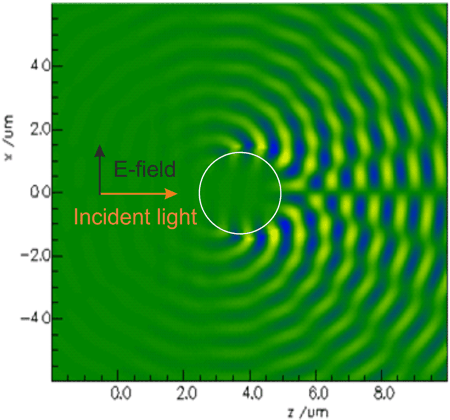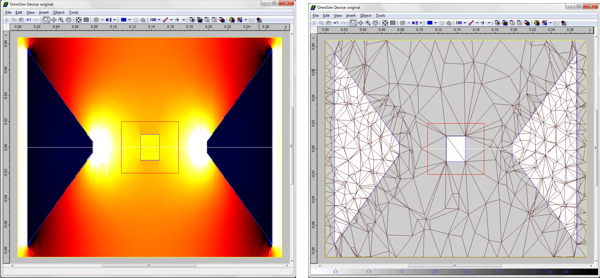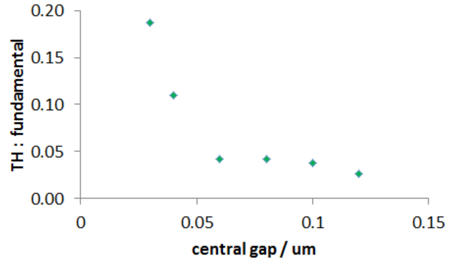OmniSimOmni-directional photonic simulations |
    |
Modelling nonlinear plasmonicsSimulation of nonlinear nano-photonics using OmniSim's FETDOmniSim’s FETD engine supports the modelling of surface and volume chi2 (e.g. SHG) and volume chi3 (Kerr) nonlinear materials, including metals; in both 2D and 3D simulations. Combined with its high accuracy for metal modelling and its graphene model, this makes FETD the ideal tool for modelling nonlinear effects and resonances in nonlinear plasmonics. Second harmonic generation from surface chi2You can see below the field distribution of second harmonic generation (SHG) generated by the chi2 surface nonlinearity on a cylinder; we plot the out-of-plane component of the H-field at the SH frequency. Surface non-linearity is modelled as a true zero-thickness layer: a 2D object in 3D or a 1D object in 2D.
Third harmonic generation from volume chi3Below, a cuboid of chi(3) nonlinear material was placed between the plates of a gold bow-tie antenna and the structure was illuminated from above with a pulse centred on 1.55um.
We measured the ratio of the transmitted electric field at the third harmonic to the field at the central wavelength as a function of the distance separating the plates. The smaller the gap, the stronger the plasmonic field enhancement, and the stronger the power in the third harmonic. This effect can form the basis of metamaterials with enhanced nonlinear optical response.
|






